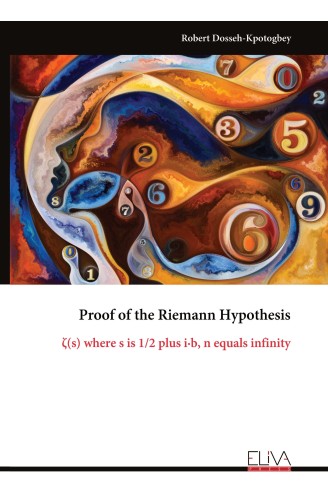
Proof of the Riemann Hypothesis
$ 120
Description
The Riemann Hypothesis states that the non-trivial zeros of the Riemann zeta function ζ(s) lie on the critical line where the real part of s is 1/2. This work argues that conventional finite computations, even with the most powerful supercomputers, will yield imprecise solutions to the Riemann Hypothesis unless the computational capacity is infinite. Our research provides a mathematical approach to precisely determine the imaginary parts of these non-trivial zeros, denoted as {b}, rather than relying on experimental or approximate methods. We start with the fundamental function X⊃2;.(Y±2.k3)+Y⊃3; ≡ 0 (Eq0) as a generator for these solutions. By linking X(n)+iY(n) to {b}, we demonstrate that as n approaches infinity, zeta(s) approaches 0, with the real part a = 1/2. The methodology involves calculating b values from a specific element of zeta(s) and showing that the other part of ζ(s) inherently introduces a = 1/2 as n approaches +infinity. This is supported by new calculations and an extended data table (Table II). Further exploration delves into the variations of k3 and their effect on the b values. We utilize two key equations (Eq1 and Eq2) to model the behavior of the solutions. For instance, when k3 = -5, we find roots for s2 = sin(log(2) * b) near ± 0.988. This leads to a set of b values, such as 88.602, 79.537, and others, when k ranges from -10 to 10. Similar patterns are observed for k3 = -4, -3, -2, -1, consistently showing that the computed b values align closely with the known imaginary parts of the non-trivial zeros of rho_k (e.g., ± 14.134..., ± 21.022..., ± 25.010...). The research also examines how other values of a (the real part) can be obtained from the function k = ((-1)^(1/(1-a))-1) * n, demonstrating that a = 1/2 is a specific case where k=0. This comprehensive analysis supports the assertion that the Riemann Hypothesis can be rigorously proven by establishing a = 1/2 for any b value, thereby validating the solutions to the zeta function derived from this framework.



